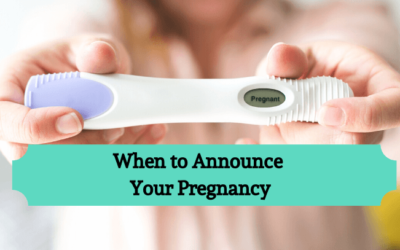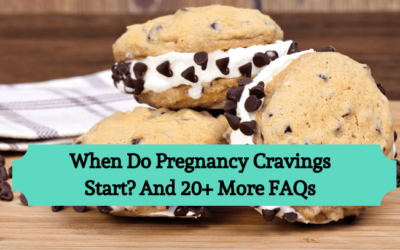First of all, Congratulations on being pregnant! While there is a lot of happiness involved in becoming a parent, pregnancy is not without some “bumps” in the road.
Morning sickness is a very common symptom experienced by most women during pregnancy. This guide seeks to explain why pregnant women experience it and provide ways to make it a little more bearable.
What is morning sickness?
It is nausea or vomiting that occurs during pregnancy. Some pregnant women will only experience bouts of nausea but many will need to deal with daily episodes of vomiting.
Unfortunately, calling it morning sickness is a bit inaccurate, seeing as it can occur at just about any time of the day or night.
When does morning sickness start?
Mothers usually experience it early (around 1.5 months or 6 weeks into the pregnancy) and it could last until around week number 14. Morning sickness is usually worst at week 7 to 10, however, the symptoms should gradually disappear after week 10.
Who gets morning sickness?
There is not a reliable way to predict which women will experience the sickness. About two-thirds of pregnant women will struggle with nausea or vomiting at some point during their pregnancy.
The severity is a bit unpredictable as well and can change from one pregnancy to the next. However, you are more likely to experience morning sickness if you have had previous exposure to estrogen (like birth control), a previous pregnancy with morning sickness or you are carrying multiples.
If you were prone to motion sickness, nausea from headaches, or nausea from strong odors before pregnancy, you are also more likely to have it during pregnancy.
What causes morning sickness?
The topic isn’t entirely understood at this point. It is theorized that the increase in hormones associated with pregnancy play a role.
There are three hormones in particular that increase the most during early pregnancy:
Human gonadotropin: HCG is produced by the placenta after the fertilized embryo implants into the uterus. This is the hormone that is detected by home pregnancy tests. It is most likely not the rise in HCG that causes morning sickness but rather the two additional hormones that HCG triggers to increase.
Estrogen: Levels of circulating estrogen increase rapidly during the first trimester and this may contribute to morning sickness.
Progesterone: As levels of progesterone increase, gastrointestinal muscles relax and can create some stomach uneasiness. Heartburn, acid reflux and morning sickness may be a result of these increased levels.
Scientists believe that nausea during early pregnancy is an evolutionary trait to prevent pregnant mothers from ingesting foods that could harm the fetus.
Additionally, many doctors believe that experiencing morning sickness is a good sign for the continuation of a pregnancy and indicates healthy placental growth.
Although, plenty of pregnant women who do not experience morning sickness go on to have healthy babies as well.
How long will I have morning sickness?
Most women find relief from nausea and vomiting before they enter their second trimester. Even if morning sickness does not totally resolve, it usually gets less intense around 12 weeks gestation.
However, a minority of women will continue to experience symptoms until 20 weeks or more.
Will my morning sickness hurt the baby?
While unpleasant, morning sickness does not typically harm mother or baby. There is a rare condition called Hyperemesis Gravitum that affects less than 2% of all pregnancies.
With this condition, the mother is unable to hold down any food and little drink. She will lose weight (5% of pre-pregnancy weight or more) and will very likely become dehydrated or suffer from an electrolyte imbalance.
HG is a very extreme version of morning sickness and should be monitored by a health care provider. If you are unable to keep any food down for more than 24 hours, make sure to contact your doctor.
How do I deal with morning sickness?
There is good news and bad news. The bad news is there does not (via research) seem to be any one thing that helps all pregnant women with their morning sickness.
The good news is there are numerous things you can try and many women can find relief. Please consult with your physician if your symptoms continue well over week 20.
Small meals
It’s important to continue to eat, even if you don’t really feel like eating most of the time. An empty stomach can actually make nausea worse as the sugar levels in your blood drop. Having small amounts of food throughout the day will keep your blood sugar levels more consistent.
Hydration
It’s very easy to become dehydrated, especially if your sickness is causing you to vomit. Dehydration can exacerbate nausea. Water is good, but ginger ale or Gatorade are good options too.
Eat what you can, when you can, and keep it bland
Basically, if you feel like you can only eat cereal for breakfast, lunch, and dinner, do that. It’s okay, in the short term, to just eat what you can.
Similarly to when you are vomiting from a stomach bug, bland food is usually a bit more tolerated. Spicy or strong flavors can be harder to keep down. Simple broths, saltine crackers, bananas, and toast are examples of more bland foods.
Essential Oils (Aromatherapy)
Another common symptom of early pregnancy is a heightened sense of smell. Aromatherapy uses specific scents to elicit certain responses, like easing morning sickness. Commonly used oils include Ginger, Peppermint and Lemon.
Acupressure
Applying light pressure to specific areas of the body is thought to help ease the feeling of nausea. A common point to apply pressure is the interior of the arm, slightly below the wrist. There are a variety of acupressure products, including bracelets, which can be worn throughout the day or night.
Unisom and B6
A common over-the-counter option is taking a B6 capsule and half a Unisom pill. Since Unisom is a sleep aid, the combination is typically taken before bed. It’s a good idea to consult your doctor before you start taking any kind of vitamin or supplement during pregnancy.
Prescription medication
If you are not able to find something that works for you and your everyday activities are being adversely affected, you may want to consider prescription medication. There are several anti-nausea medications available. Your health care provider will determine which option is best for you.
It’s a good idea to try and pinpoint possible triggers for your morning sickness (empty stomach, specific time of day, certain smells, etc.) and then avoid these triggers if possible. Another source of good news is that even if you can’t “fix” your morning sickness, you are very likely to “grow out of it” by your second trimester.











0 Comments